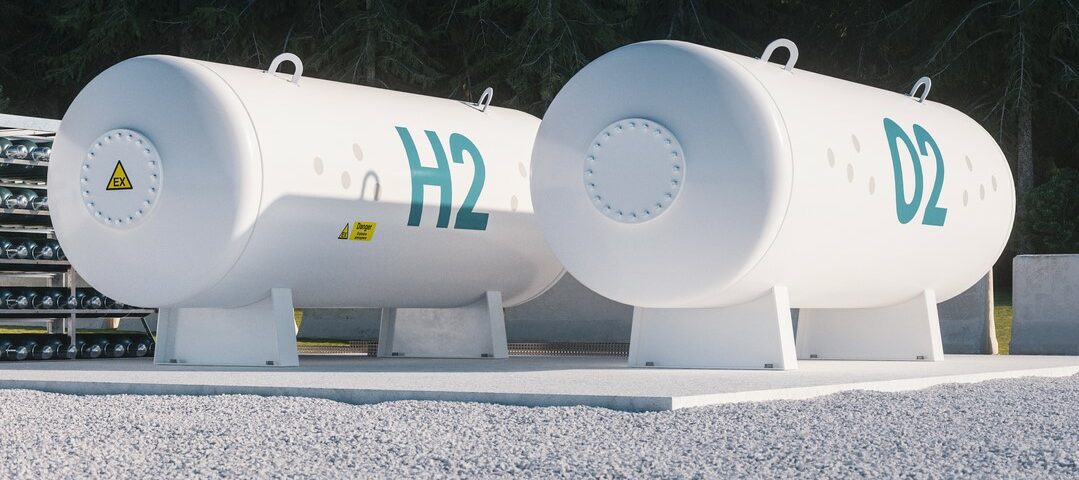Key Highlights
- Global decarbonisation is one of the 2050 targets set by nations. Since hydrogen generation accounts for more than 2% of global CO2 emissions, limiting the quantity of carbon dioxide gas emitted during its manufacture to create "green hydrogen" is crucial to accomplishing this objective.
- Hydrogen's energy density, production cost, and infrastructure are some of the challenges faced today in the sector.
- Japan's largest general trade company, Mitsui & Co., bought STATS (UK).
- RWE and Mitsui signed an MoU with the Port of Tilbury in England to promote two sustainable hydrogen projects.
- In France, Lhyfe and its partners launched a 5MW green hydrogen project.
- VERDE HYDROGEN, a US-based leader in CARBON ZERO hydrogen solutions, is developing and commissioning a 2MW green hydrogen electrolyzer in Morocco.
- Eco-Runner Team Delft's hydrogen automobile set a Guinness World Record for mileage on full tanks
In an epoch characterised by urgent environmental challenges and the imperative for sustainable energy solutions, hydrogen has emerged as a highly promising contender. Hydrogen, being the element with the highest abundance in the universe, possesses substantial potential to fundamentally transform our energy infrastructure and facilitate the progression towards a more environmentally friendly and sustainable trajectory.
Hydrogen As a Source of Energy
Global decarbonisation is one of the 2050 goals that were established by countries all over the world. Since the generation of hydrogen accounts for more than 2% of worldwide CO2 emissions, reducing the amount of carbon dioxide gas released during its creation, leading to "green hydrogen", is a major factor in achieving this goal.
When burned in a fuel cell, hydrogen creates just water, making it a zero-emissions fuel source. Natural gas, nuclear power, biomass, and renewable energy sources like the sun and wind can all be used to create hydrogen for residential use. For these reasons, it is a good candidate for use as fuel in cars and power plants. It has a wide range of potential uses, from vehicles and homes to portable energy sources.
Embrace a Sustainable Future at All-Energy & Dcarbonise 2024
Discover the latest advancements in renewable energy sources and innovative solutions that will pave the path to a greener and net zero future.
The Challenge
Harnessing the full potential of hydrogen requires overcoming several challenges.
There are now a variety of technologies available for producing hydrogen fuel. But then, the energy density of hydrogen is quite poor. Hydrogen has to be stored in extreme conditions, such as high pressure, low temperatures, or chemical reactions, which makes its compact storage a challenge.
The production cost is also one of the challenges encountered. A fuel cell is one of the most vital parts of harnessing hydrogen. For fuel cells to be commercially viable, their price needs to drop significantly without sacrificing quality. In contrast to batteries, where the majority of the cost is in the raw materials used to build them, the most expensive aspect of a fuel cell is the production of the fuel cell stack.
Building a reliable network for supplying and storing hydrogen is also essential. To allow its incorporation into current energy systems and enable its widespread acceptance across industries and transportation sectors, a network of hydrogen refuelling stations, pipelines, and storage facilities must be built.
Latest Hydrogen Projects
With the rise of hydrogen as a renewable energy resource, here are some projects that are also being done:
- Mitsui & Co, one of the largest general trading businesses in Japan, has bought STATS (UK), a pipeline technology business based in Aberdeenshire, for an undisclosed sum. Mitsui's Chief Operating Officer for Iron & Steel Products, Koichi Fujita, has stated that the company is confident that the acquisition of STATS, a market leader in the global energy industry, will improve the efficiency of Mitsui's operations and open up new avenues for expansion in the fields of carbon capture and storage and hydrogen.
- In order to advance two sustainable hydrogen projects, RWE and Mitsui have just signed a memorandum of understanding (MoU) with the Port of Tilbury in England. The first involves a small-scale 'proof of concept' demonstrator project to generate green hydrogen for decarbonising port equipment by moving away from fossil fuels. The second is a feasibility report for a 10MW green hydrogen power station. The site is located in the centre of the Thames Freeport on Port of Tilbury land which was once home to a coal-fired power station.
- A green hydrogen project with a capacity of 5MW has been launched in France by Lhyfe and its partners. ADEME has awarded a grant of €3.4m to the Hy'Touraine project. And with that, EnER Centre Val de Loire, a subsidiary of Syndicat Intercommunal d'Energie d'Indre et Loire, will provide clean electricity for the project's electrolyser.
- A 2MW green hydrogen electrolyzer project in Morocco is being developed and commissioned by VERDE HYDROGEN, a US-based global leader in the transition to CARBON ZERO hydrogen solutions. Verde Hydrogen's 2MW (Verde-400) containerized electrolyzer will produce hydrogen from alkaline water, utilising Verde's latest patented technology in this green hydrogen project.
- A student team's hydrogen car, Eco-Runner Team Delft, shown in May, set a Guinness World Record for distance on full tanks of hydrogen fuel.
Empowering a Sustainable Energy Revolution with Hydrogen
There may be obstacles to overcome, but support for hydrogen is rising quickly. Hydrogen technology, infrastructure, and policy development are receiving funding and support from governments, businesses, and academic institutions worldwide.
All this work is laying the groundwork for a hydrogen economy, which has the potential to revolutionise our energy infrastructure and propel us towards a future without carbon emissions.
The path to a hydrogen-powered future is fraught with difficulty but rich with opportunity. The shift to a sustainable energy environment can be hastened, and a better world can be created by taking advantage of hydrogen's adaptability, abundance, and lack of emissions.

